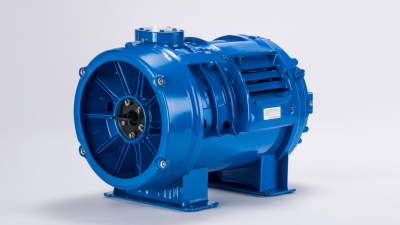Revolutionizing Industries with Tailored Custom Engineering Solutions
In today's rapidly evolving industrial landscape, the demand for customized solutions has never been more critical. A recent report published by McKinsey & Company illustrates that companies embracing custom engineering solutions can achieve up to 30% higher efficiency and significantly enhance their competitive advantage. Custom engineering not only allows businesses to fine-tune their products and services to meet specific client needs but also drives innovation across sectors such as manufacturing, technology, and healthcare. According to a study by Deloitte, the global market for tailored engineering services is projected to reach $500 billion by 2025, underscoring the pivotal role that custom engineering will play in revolutionizing industries. As organizations seek to optimize their operations and provide differentiated offerings, the strategic implementation of custom engineering emerges as a key driver for sustaining growth and fostering long-term success.

Understanding the Need for Customized Engineering Solutions in Modern Industries
In the rapidly evolving landscape of modern industries, the necessity for customized engineering solutions has become increasingly apparent. Traditional, one-size-fits-all approaches are often inadequate to address the unique challenges faced by businesses today. Companies are now seeking tailored solutions that not only meet their specific operational requirements but also enhance efficiency and innovation. Custom engineering allows for the creation of specialized tools, systems, and processes that are designed to optimize performance and reduce waste, ultimately driving competitive advantage.
The demand for customized solutions is driven by various factors including technological advancements, market dynamics, and individual company needs. As industries such as manufacturing, healthcare, and energy embrace digital transformation, the importance of bespoke engineering becomes even clearer. Tailored solutions facilitate the integration of new technologies and processes, ensuring that companies can adapt swiftly to changing environments and maintain their relevance. By focusing on customization, businesses can unlock new opportunities, enhance productivity, and foster a culture of innovation that is essential for long-term success in today’s fast-paced economy.
Revolutionizing Industries with Tailored Custom Engineering Solutions
| Industry | Customization Need | Case Studies Examples | Benefits of Custom Solutions |
|---|---|---|---|
| Manufacturing | Streamlined production lines | Automated assembly solutions | Increased efficiency and reduced waste |
| Healthcare | Personalized medical devices | Tailored surgical instruments | Improved patient outcomes and safety |
| Automotive | Custom vehicle parts | Specialized aftermarket modifications | Enhanced performance and user experience |
| Aerospace | Unique aircraft components | Custom engine configurations | Increased safety and fuel efficiency |
| Construction | Specialized building materials | Custom scaffolding solutions | Enhanced project flexibility |
Identifying Key Industries That Benefit from Tailored Engineering Solutions
In today's rapidly evolving market, tailored custom engineering solutions are becoming increasingly vital across various industries. Sectors such as healthcare, manufacturing, and renewable energy have notably benefited from these specialized services. In healthcare, for instance, custom engineering solutions improve patient care through advanced medical devices and personalized treatment systems. By focusing on the unique needs of healthcare providers, engineers can design technologies that enhance efficiency and outcomes.
**Tips:** When considering tailored engineering solutions, it is essential to conduct a thorough needs assessment to pinpoint specific challenges within your industry. Engage with stakeholders to identify pain points and ensure that the solutions developed are aligned with real-world applications.
Manufacturing also sees significant advantages with customized engineering. By integrating smart technology and automation through tailored solutions, companies can optimize production processes and reduce waste. This shift not only boosts productivity but also leads to substantial cost savings in the long run.
**Tips:** Stay ahead of the curve by embracing innovation through collaboration with specialized engineering firms. This approach can foster creativity and lead to the development of cutting-edge solutions that drive competitive advantages in your industry.
Steps to Develop Effective Custom Engineering Strategies for Businesses
In today's fast-paced market, developing effective custom engineering strategies is essential for businesses looking to stay competitive. According to a recent report by McKinsey, companies that tailor their engineering solutions can increase operational efficiency by up to 30%. Custom engineering allows businesses to address unique challenges directly, driving innovation and enhancing performance. A strategic approach involves assessing the specific needs of the organization, integrating the latest technologies, and fostering a culture of collaboration among teams.
**Tip:** Start by conducting a comprehensive needs assessment to identify key areas where custom solutions can make a significant impact. Engaging employees in this process not only provides valuable insights but also promotes buy-in for new initiatives.
Furthermore, businesses should embrace data-driven decision-making. A study by Deloitte found that organizations leveraging advanced analytics in their engineering processes saw a 20% improvement in project delivery times. By using data to inform strategy, companies can optimize their resources and anticipate market trends more effectively.
**Tip:** Implement agile methodologies to enhance flexibility in your custom projects. This approach allows for continuous iteration and alignment with evolving business goals, ensuring that engineering solutions remain relevant and effective.
Revolutionizing Industries with Tailored Custom Engineering Solutions
This chart illustrates the investment in tailored custom engineering solutions across various industries. The manufacturing and automotive sectors lead in investment, showcasing the growing demand for innovative engineering strategies.
Case Studies: Successful Implementation of Custom Engineering Solutions
In the rapidly evolving landscape of industry, custom engineering solutions have emerged as a transformative force. By tailoring approaches to meet the unique needs of businesses, custom engineering not only enhances operational efficiency but also drives innovation. For instance, a leading automotive manufacturer faced challenges in streamlining their assembly line. By implementing a bespoke engineering solution that integrated advanced robotics and real-time data analytics, they significantly reduced production time and improved quality control, resulting in increased throughput and customer satisfaction.

Another noteworthy case is in the pharmaceuticals sector, where a custom engineering firm collaborated with a biopharmaceutical company to design a specialized facility for drug manufacturing. This facility incorporated state-of-the-art cleanroom technologies and modular designs, enabling the client to expedite the production process while ensuring compliance with stringent regulatory standards. The tailored approach not only met the immediate manufacturing needs but also allowed for scalability, positioning the company for future growth in an increasingly competitive market.
These case studies illustrate how custom engineering solutions can effectively address industry-specific challenges, fostering both operational excellence and strategic advantage.
Future Trends in Custom Engineering and Their Impact on Industry Innovation
The custom engineering landscape is rapidly evolving, driven by several key trends highlighted in recent industry reports. The laminated pad market, for instance, is projected to reach a value of $39,162 million by 2024 and is expected to soar to $50,761 million by 2032, reflecting a compound annual growth rate of 3.3%. Such growth underscores the increasing demand for tailored solutions that adapt to the specific needs of various industries, enabling businesses to enhance their operational efficiency and innovate continuously.

Furthermore, the latest Deloitte report titled "Technology Trends 2025" emphasizes the pervasive influence of AI, suggesting that organizations must fully align their strategies to harness AI's potential effectively. This alignment is essential for businesses looking to improve their engineering solutions and adapt to market demands swiftly. In parallel, the industrial machinery sector is experiencing significant growth, with projections indicating a rise from 6,313.62 billion yuan in 2019 to 7,128.86 billion yuan by 2024, confirming that China remains the largest global producer and consumer of machine tools. This flourishing environment presents a ripe opportunity for custom engineering solutions that cater to the unique requirements of industrial applications.
Related Posts
-

How to Optimize Your Facility's Efficiency with Regenerative Blowers: Insights and Data
-

10 Effective Tips for Choosing the Right AC Pump for Your Needs
-

How to Choose the Right Suction Pump for Your Specific Needs
-

5 Essential Tips for Choosing the Right Vacuum Blower Pump for Your Needs
-

Exploring Air Vacuum Innovations at the 138th Canton Fair 2025
-

Exploring Air Vacuum Innovations at the 138th China Import and Export Fair 2025